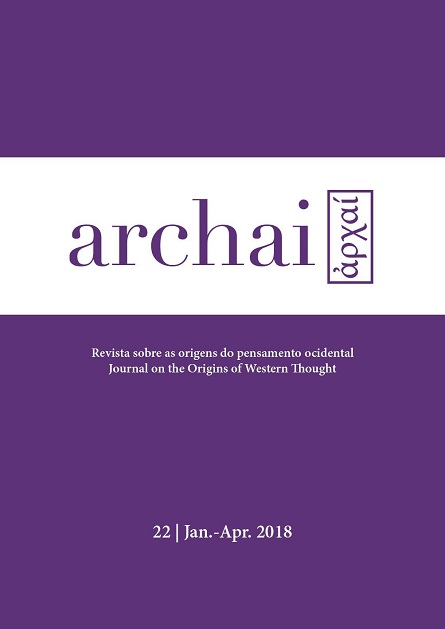The law in Euripides’ Medea
DOI:
https://doi.org/10.14195/1984-249X_22_8Keywords:
Euripides, Medea, Ancient Greek Law, Themis, Dike, Oath, Dowry, Divorce, Exile, GorgiasAbstract
This paper investigates appeals to law in Euripides’ Medea, dramatic elements which seem to point to two distinct aspects in the development of Greek Law. The text seems to appeal to: a) archaic law when the oath appears adequate (or sufficient) to establish wedlock, and b) classical law with respect to other aspects of familial jurisprudence. I argue that Euripides has intentionally contrasted these legal perspectives as part of a larger contrasting narrative. Euripides begins by introducing the essentials features of the myth of Medea in terms of its archaic context. In the latter half, he then in turn contrasts this narrative with contemporary views, and thus offers a critical reflection upon his own culture and society. These contrasting narratives are further supported by highlightening an important transition in the text, which focuses on Themis and Dike and the importance of laws.
Downloads
Downloads
Published
How to Cite
Issue
Section
License
Given the public access policy of the journal, the use of the published texts is free, with the obligation of recognizing the original authorship and the first publication in this journal. The authors of the published contributions are entirely and exclusively responsible for their contents.
1. The authors authorize the publication of the article in this journal.
2. The authors guarantee that the contribution is original, and take full responsibility for its content in case of impugnation by third parties.
3. The authors guarantee that the contribution is not under evaluation in another journal.
4. The authors keep the copyright and convey to the journal the right of first publication, the work being licensed under a Creative Commons Attribution License-BY.
5. The authors are allowed and stimulated to publicize and distribute their work on-line after the publication in the journal.
6. The authors of the approved works authorize the journal to distribute their content, after publication, for reproduction in content indexes, virtual libraries and similars.
7. The editors reserve the right to make adjustments to the text and to adequate the article to the editorial rules of the journal.



